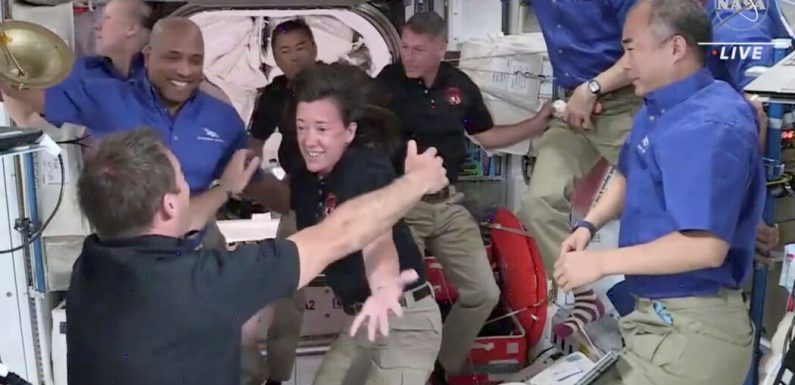
“Endeavour arriving.”
With those words, the four members of the Crew-2 Dragon Endeavour began floating one by one into the International Space Station on Saturday morning, about 24 hours after their capsule lifted off from the Kennedy Space Center in Florida.
The Dragon Endeavour docked onto the space station shortly after 5 a.m., according to Space X, the company run by Elon Musk that built the spacecraft.
Waiting to greet the crew were seven astronauts who beamed and hugged each of the new arrivals as they slowly made their way through a hatch and into the station.
“Their arrival means there are now 11 humans aboard our orbiting laboratory, a number not seen since the space shuttle era,” NASA said on Twitter.
The crew that arrived on Saturday included two NASA astronauts, Shane Kimbrough and Megan McArthur, as well as Thomas Pesquet of France and Akihiko Hoshide of Japan, according to NASA.
The journey to the station was relatively smooth, though at one point the crew was warned that a piece of space debris was going to whiz past the capsule at about 1:43 p.m. Eastern time on Friday.
The astronauts were told to put on their spacesuits, get back in their seats and lower their protective visors. The debris was not immediately identified. NASA said the debris ended up passing about 28 miles from the capsule, a safe distance, and that the spacecraft was not at risk.
The crew will remain with three other astronauts: Mark Vande Hei of NASA, and two Russians, Oleg Novitskiy and Pyotr Dubrov, all of whom arrived at the station on April 9.
The four members of Crew-1, who arrived in November on the Dragon Resilience, will spend five days with Crew-2 before returning to Earth.
Crew-2 will stay in space for six months. Their journey to the space station is a continuation of an effort by NASA to turn over to the private sector the business of taking people to low-Earth orbit.
The successful mission on Saturday was the third time Space X carried astronauts to the International Space Station for NASA.
“This is a thrilling time for human spaceflight and this new success of the commercial crew program embodies it,” said David Parker, director of human and robotic exploration at the European Space Agency.
NASA has hired two companies — SpaceX and Boeing — to provide transportation of astronauts to and from the International Space Station. SpaceX was the first to be ready to take astronauts to orbit.
Its first mission was last May, when the company took two NASA astronauts — Douglas G. Hurley and Robert L. Behnken, who is married to Ms. McArthur — to the space station for a test flight to work out any remaining glitches in the systems.
Earlier this month, NASA awarded SpaceX a $2.9 billion contract to develop a giant rocket called Starship, which the company said will one day take people to Mars. Its first mission, however, will be to drop off NASA astronauts on the moon.
Kenneth Chang contributed reporting.
Source: Read Full Article